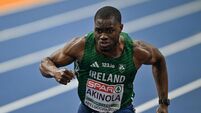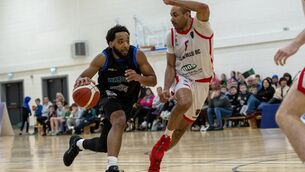Resurgent Scots now a direct threat to Schmidt’s Slambitions

That derailing of the chariot will, of course, have a big bearing on the destination of this season’s Six Nations championship, with the defeat of Eddie Jones’s men offering Ireland some breathing space at the top of the championship heading into our next challenging encounter against Gregor Townsend’s charges.
Ironic really how the rugby public get so animated by the sight of the English, the only home country to row in behind our ill-fated 2023 Rugby World Cup bid, being smashed by the Scots whose lack of support, along with the Welsh, to host that tournament proved so decisive.















